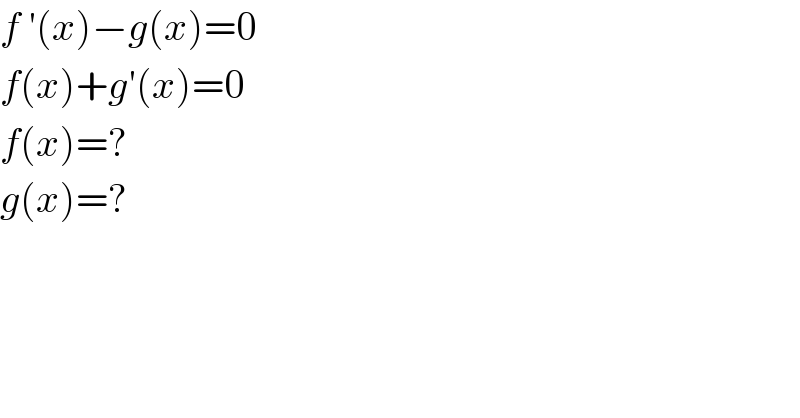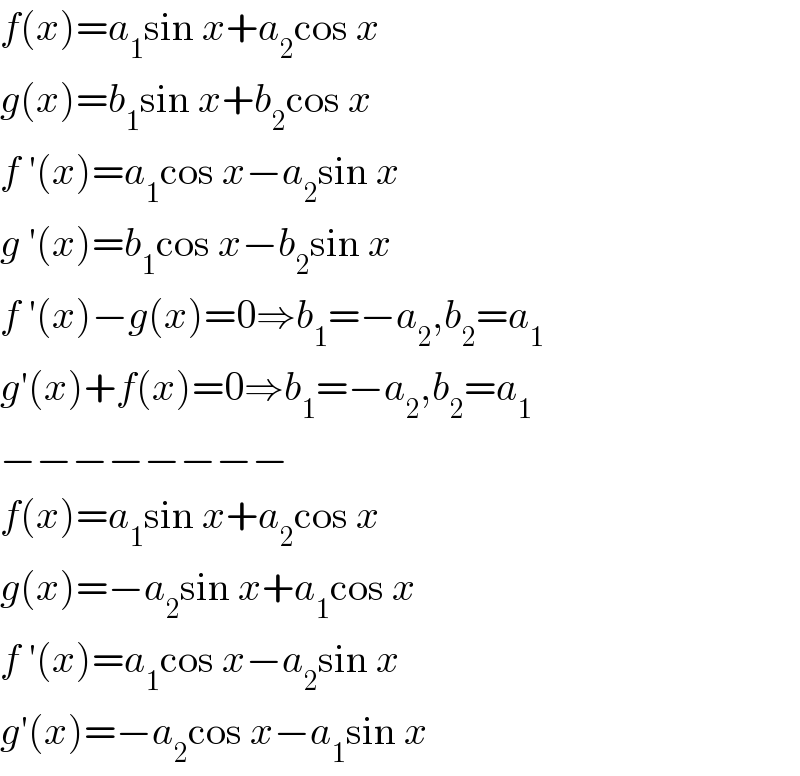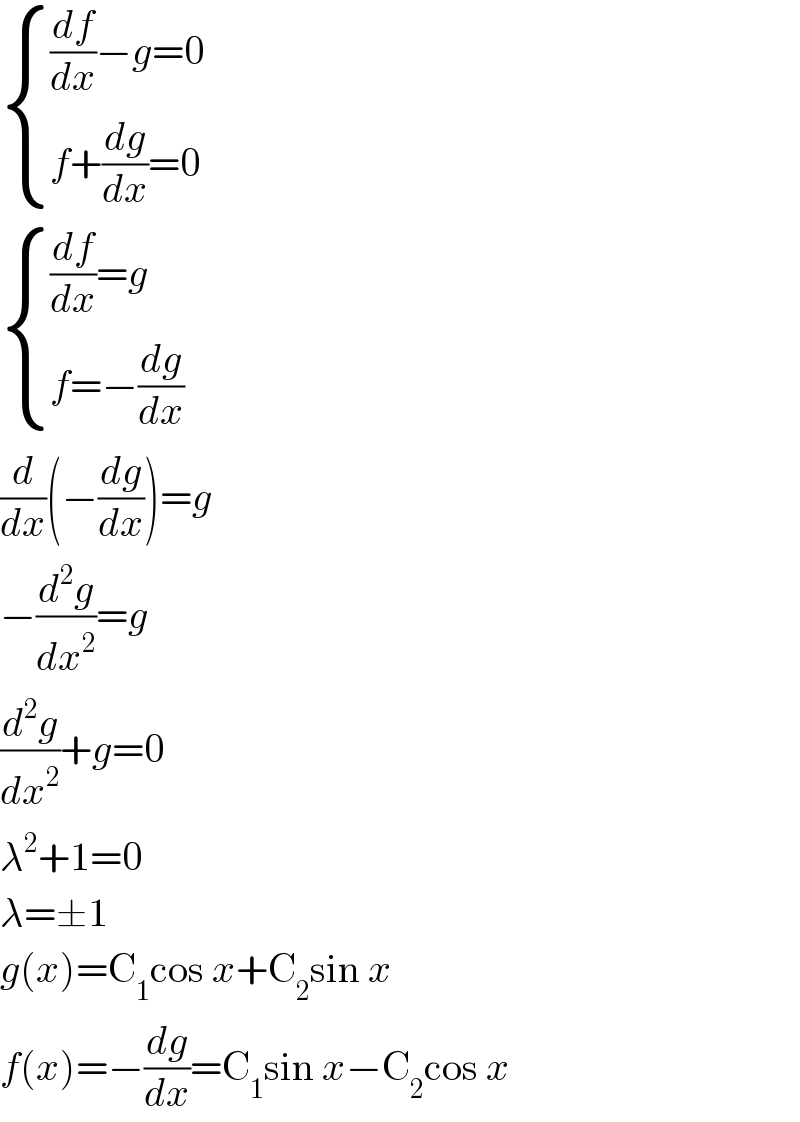Question Number 1930 by Rasheed Soomro last updated on 24/Oct/15

$${f}\:'\left({x}\right)−{g}\left({x}\right)=\mathrm{0} \\ $$$${f}\left({x}\right)+{g}'\left({x}\right)=\mathrm{0} \\ $$$${f}\left({x}\right)=? \\ $$$${g}\left({x}\right)=? \\ $$
Answered by prakash jain last updated on 24/Oct/15

$${f}\left({x}\right)={a}_{\mathrm{1}} \mathrm{sin}\:{x}+{a}_{\mathrm{2}} \mathrm{cos}\:{x} \\ $$$${g}\left({x}\right)={b}_{\mathrm{1}} \mathrm{sin}\:{x}+{b}_{\mathrm{2}} \mathrm{cos}\:{x} \\ $$$${f}\:'\left({x}\right)={a}_{\mathrm{1}} \mathrm{cos}\:{x}−{a}_{\mathrm{2}} \mathrm{sin}\:{x} \\ $$$${g}\:'\left({x}\right)={b}_{\mathrm{1}} \mathrm{cos}\:{x}−{b}_{\mathrm{2}} \mathrm{sin}\:{x} \\ $$$${f}\:'\left({x}\right)−{g}\left({x}\right)=\mathrm{0}\Rightarrow{b}_{\mathrm{1}} =−{a}_{\mathrm{2}} ,{b}_{\mathrm{2}} ={a}_{\mathrm{1}} \\ $$$${g}'\left({x}\right)+{f}\left({x}\right)=\mathrm{0}\Rightarrow{b}_{\mathrm{1}} =−{a}_{\mathrm{2}} ,{b}_{\mathrm{2}} ={a}_{\mathrm{1}} \\ $$$$−−−−−−−− \\ $$$${f}\left({x}\right)={a}_{\mathrm{1}} \mathrm{sin}\:{x}+{a}_{\mathrm{2}} \mathrm{cos}\:{x} \\ $$$${g}\left({x}\right)=−{a}_{\mathrm{2}} \mathrm{sin}\:{x}+{a}_{\mathrm{1}} \mathrm{cos}\:{x} \\ $$$${f}\:'\left({x}\right)={a}_{\mathrm{1}} \mathrm{cos}\:{x}−{a}_{\mathrm{2}} \mathrm{sin}\:{x} \\ $$$${g}'\left({x}\right)=−{a}_{\mathrm{2}} \mathrm{cos}\:{x}−{a}_{\mathrm{1}} \mathrm{sin}\:{x} \\ $$
Answered by 123456 last updated on 24/Oct/15

$$\begin{cases}{\frac{{df}}{{dx}}−{g}=\mathrm{0}}\\{{f}+\frac{{dg}}{{dx}}=\mathrm{0}}\end{cases} \\ $$$$\begin{cases}{\frac{{df}}{{dx}}={g}}\\{{f}=−\frac{{dg}}{{dx}}}\end{cases} \\ $$$$\frac{{d}}{{dx}}\left(−\frac{{dg}}{{dx}}\right)={g} \\ $$$$−\frac{{d}^{\mathrm{2}} {g}}{{dx}^{\mathrm{2}} }={g} \\ $$$$\frac{{d}^{\mathrm{2}} {g}}{{dx}^{\mathrm{2}} }+{g}=\mathrm{0} \\ $$$$\lambda^{\mathrm{2}} +\mathrm{1}=\mathrm{0} \\ $$$$\lambda=\pm\mathrm{1} \\ $$$${g}\left({x}\right)=\mathrm{C}_{\mathrm{1}} \mathrm{cos}\:{x}+\mathrm{C}_{\mathrm{2}} \mathrm{sin}\:{x} \\ $$$${f}\left({x}\right)=−\frac{{dg}}{{dx}}=\mathrm{C}_{\mathrm{1}} \mathrm{sin}\:{x}−\mathrm{C}_{\mathrm{2}} \mathrm{cos}\:{x} \\ $$
